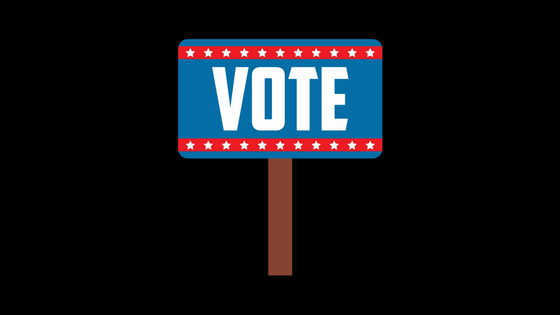Political Ethics: Keeping Your Library Neutral

As the presidential election season endures, librarians and other information professionals in public libraries may be tempted to express fondness for one political party and dislike for the other. Sometimes expression of one’s political stance is done unintentionally. Whether such expression is intentional or benign, it may convey a perceived bias to patrons and to the community that the library is for or against a certain candidate running for office whether that is for president, governor, mayor, senator, etc.
Ways of Expressing Bias
Such expression may come in the form of biased book displays such as exhibiting positive books about one candidate or political party while displaying only negative (or even none) about the other. Bias can also be expressed in the collection such as books about one candidate or political party disproportionately outweighing the library’s holdings for the other. It can also be expressed through readers’ advisory services, reference services, political material made available at the library, and even through political clothing worn by library staff.
Librarians as Public Servants
As tempting as steering the public toward a particular political party or candidate may be, it is imperative that public librarians do not give into these desires. Public librarians are public servants, and must remain politically impartial as to not appear to use their public position to forward the interests of a specific political party or candidate. Public library staff should in no way appear as if they or their collections are sponsoring a certain political agenda. Doing so alienates patrons who have opposing views and makes them feel marginalized. Political inclusiveness should be one of the main goals for public libraries.
Library Ethical Codes
Librarians are ethically bound to observe political neutrality according to Statement VI of the Code of Ethics of the American Library Association: “We do not advance private interests at the expense of library users, colleagues, or our employing institutions.”[1] And also per Section 5 of the IFLA Code of Ethics for Librarians and other Information Workers: “Librarians and other information workers have the right to free speech in the workplace provided it does not infringe the principle of neutrality towards users.”[2]
Evaluating Your Collection
When evaluating your collection for bias, remember another clause in Section 5 of IFLA’s Code of Ethics: “Librarians and other information workers are strictly committed to neutrality and an unbiased stance regarding collection, access, and service. Neutrality results in the most balanced collection and the most balanced access to information achievable.”[3] Steps to Ensure Your Collection Has Political Parity:
- Update your library’s collection development policy to include a section on political diversity, referencing the ALA and IFLA Codes of Ethics.
- Weed the collection to ensure a healthy distribution of diverse political material.
- When purchasing books on politics, compare them to what’s currently in your library’s catalog. If purchasing the books will tip the balance of the collection to cause an appearance of bias, consider weeding the collection first to achieve a state of parity, and then carefully select new material which represents a wide variety of political views.
Evaluating Your Library
Go through your library and evaluate whether any of your services, advertisements, displays, or programs politically biases your library in some way. Take heed of Statement VII of the ALA Code of Ethics: “We distinguish between our personal convictions and professional duties and do not allow our personal beliefs to interfere with fair representation of the aims of our institutions or the provision of access to their information resources.”[4] Steps to Ensure Your Library Does not Promote Political Biases:
- Make sure that book displays geared towards presidential and local elections contain a diverse mix of opinion and authors.
- Computer filtering software should be examined to make sure that it does not inadvertently block a political party’s website, giving the perception of bias.
- Do not display politically biased posters, brochures, or handouts (i.e. material solely focused on one candidate or party). Make sure that all political material made available at the library is politically neutral, providing patrons with the ability to get unbiased information on all political parties.
- Library staff should not wear political shirts, pins, hats, etc., as this may be perceived by patrons as the library promoting a particular candidate or political party.
- Library social media accounts should not post anything politically biased, but provide information and links to websites that contain information and resources for all candidates and political parties.
Keeping yourself and your collection politically neutral ensures that you are in good ethical standing and exemplifies one of the missions of libraries: to provide the greatest amount of access to as much diverse material as possible.
References
[1] Code of Ethics of the American Library Association, http://www.ala.org/advocacy/proethics/codeofethics/codeethics, retrieved on October 19, 2016.
[2] International Federation of Library Associations, “IFLA Code of Ethics for Librarians and other Information Workers,” retrieved on September 30, 2016, http://www.ifla.org/news/ifla-code-of-ethics-for-librarians-and-other-information-workers-full-version.
[3] Ibid.
[4] Code of Ethics of the American Library Association.
Tags: ethical standards, ethics, libraries and politics, library policies, politics












